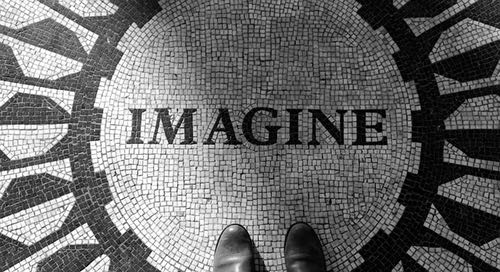The question of whether one's belief (or lack of belief) in gods is a conscious choice one makes is not merely an interesting subject to consider; it is one with important implications for atheists and theists alike. When I polled atheists about whether they chose atheism, nearly all who responded said no. Atheism was not a choice they made. While people certainly choose whether to identify themselves as atheists, speak about atheism, explore atheist-related topics, and all manner of other things related to atheism, it seems that most atheists do not choose to be atheists. I count myself among them. I did not choose to be an atheist either.
So what? Why does it matter whether atheism is a choice one makes? Here are a few quick thoughts on the subject:
- If atheism is not a choice one makes, bigotry against atheists more closely resembles other forms of bigotry (e.g., racism, anti-LGBT bigotry) that are far less socially acceptable than anti-atheist bigotry is at present.
- If atheism is not a choice, theism probably isn't a choice either; perhaps this should be taken into account by atheists when we interact with theists.
- If atheism and theism are not choices one makes, efforts to convert or de-convert others that take this into account are likely to be more successful than those that do not.
Atheism is not the act of turning one's back on any particular god. It isn't about being angry at anyone's preferred god. It isn't a choice at all. Most of us arrive at atheism, sometimes quite reluctantly, because we realize that there is not sufficient evidence to support belief in gods. In some ways, it is not terribly different from realizing that there is no Santa Claus. And once someone has realized that there is no Santa Claus, it is difficult to imagine how one might go about choosing to believe in Santa once again.
When we recognize that atheism is not a choice, anti-atheist bigotry becomes even harder to defend. Atheists should not be condemned for something that appears to be beyond our control. And yes, this applies to theists as well. If I am going to criticize theists for insisting that my atheism makes me immoral even though atheism is nothing I have chosen for myself, I cannot very well claim that anyone who believe in gods is a moron for doing so. As a former theist, I am in a position to understand this. Moreover, it makes it easier for me to treat religious believers civilly and not to condemn them solely on the basis of their belief in gods, a belief I once shared.
Recognizing that atheism is not a choice should also tell us something about attempts by the religious to convert us. When an evangelical fundamentalist Christian asks me, "But what if you are wrong?" or attempts to persuade me with Pascal's wager, I have to laugh because I recognize that god belief does not work this way. If I do not believe in gods now, I cannot simply start believing in a particular god out of fear or an effort to hedge my bets. If I am going to be persuaded to believe in gods, leprechauns, Bigfoot creatures, the perils of GMOs, ancient aliens, and the like, evidence sufficient to support the belief will be required. Assuming that I do not currently believe in any of these things, I cannot begin believing in something I do not believe by force of will alone.
Similarly, we can learn something about efforts to de-convert theists. For me to suggest a religious believer "grow up" or abruptly give up his or her god belief would be equally absurd as the suggestion that I suddenly start believing in gods. If the belief is not something the person chose, how is he or she supposed to give it up instantly? And why would doing so be any easier than my choosing to believe in gods? It wouldn't. That is not to say that all attempts at de-conversion (or conversion) are ineffective. We know that is not the case. But those that consist of little more than demands that someone suddenly stop (or start) believing are of little value.
